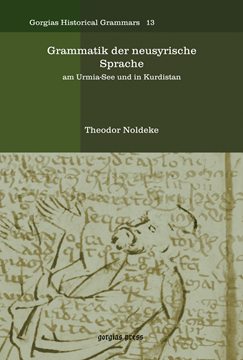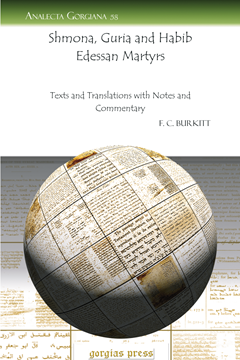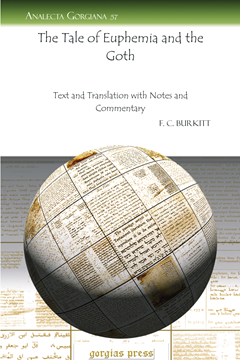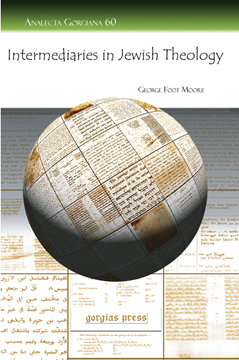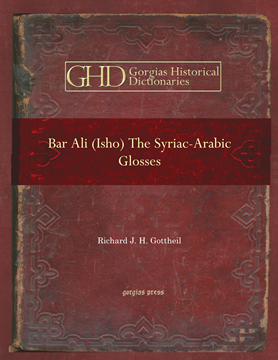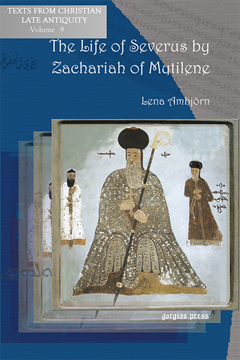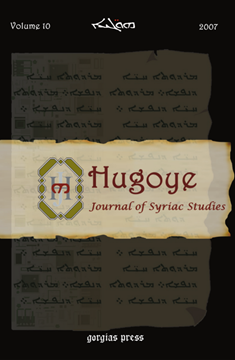Science and Hebrew Tradition
ISBN: 978-1-59333-836-7
The issue of science versus religion is as old as the Renaissance. A new bombshell was brought to this issue when Charles Darwin discovered natural selection as the mechanism of evolution. Known as “Darwin’s bulldog”, Thomas Huxley anticipated modern-day discussions on the issue of science and religion. Among the topics included here are evolution versus Genesis, the authorship of the Pentateuch, and a history of paleontology. Huxley’s final offering is an anthropological study of the evolution of theology. For the student who wishes to trace the history of this debate, Huxley is essential reading.
$178.00 (USD) $106.80 (USD)
Grammatik der neusyrische Sprache
am Urmia-See und in Kurdistan
Series: Kiraz Historical Grammars Archive 13
ISBN: 978-1-59333-835-0
This work of Theodor Nöldeke is an extremely rare find. Its scarcity should not be taken as a reflection on its authority or usefulness, however. In this original 1868 edition, Nöldeke lays out the basics of Neo-Syrian as it was used in Kurdistan and the area of Uremia. This valuable study, essentially unique to this day in its coverage of underrepresented language studies, provides a substantial, German introduction to the dialects described, followed by a thorough study of the languages themselves, also in German.
$196.00 (USD) $117.60 (USD)
Shmona, Guria and Habib Edessan Martyrs
Texts and Translations with Notes and Commentary
Series: Analecta Gorgiana 58
ISBN: 978-1-59333-873-2
In this book the Syriac texts along with translations of the tales of the martyrs are introduced by Professor Burkitt with a commentary focusing on the historicity of the different accounts.
$71.00 (USD) $42.60 (USD)
The Tale of Euphemia and the Goth
Text and Translation with Notes and Commentary
Series: Analecta Gorgiana 57
ISBN: 978-1-59333-876-3
This book provides the Syriac text along with a translation of the tale of Euphemia and the martyrs’ deliverance of her from the Goth.
$56.00 (USD) $33.60 (USD)
Intermediaries in Jewish Theology
Memra, Shekinah, and Metatron
By George Moore
Series: Analecta Gorgiana 60
ISBN: 978-1-59333-875-6
A philological study of the usage of Memra, Shekinah, and Metatron in Tragumic and Cabbalistic literature that combats nineteenth century Christian attempts to read these as references to the Second or Third Persons of the Trinity.
$41.00 (USD) $24.60 (USD)
The Syriac-Arabic Glosses
Series: Kiraz Historical Dictionaries Archive 13
ISBN: 978-1-59333-834-3
This edition of the Syriac-Arabic glosses of Isho Bar Ali is a publication difficult to locate. These glosses are located in the second part of Bar Ali’s lexicon, as the first part had been previously published. Bar Ali, a physician as well as a lexicographer, produced this noted Syriac-Arabic dictionary showing the meanings of Syriac words in Arabic. This historic step in the development of Syriac lexicography is analyzed here according to the glosses of the numerous manuscripts cited in the forward.
$206.00 (USD) $123.60 (USD)
The Life of Severus by Zachariah of Mytilene
By Lena Ambjörn
Series: Texts from Christian Late Antiquity 9
ISBN: 978-1-59333-841-1
This biography of Severus, the patriarch of Antioch from 512-518 CE, attributed to his schoolmate Zachariah of Mytilene, gives unique information about life in Mediterranean region in the second half of the 5th century. These two young men from wealthy families became involved with a Christian movement, the "philoponoi," "those devoted to work" who combined asceticism with theological study. The work, originally in Greek, survives only in Syriac, which this volume presents alongside the first English translation of it. It is an important source for studies on Ancient Biography, Late Antiquity, and Early Christianity.
$44.00 (USD) $26.40 (USD)
Hugoye - Journal of Syriac Studies (Volume 10)
Edited by George Anton Kiraz
Series: Hugoye: Journal of Syriac Studies 10
ISBN: 978-1-59333-819-0
Widely regarded as a premier journal dedicated to the study of Syriac, Hugoye: Journal of Syriac Studies was established in 1998 as a venue devoted exclusively to the discipline. An organ of Beth Mardutho, the Syriac Institute, the journal appears semi-annually and will be printed in annual editions. A peer-reviewed journal, Hugoye is a respected academic source for up-to-date information about the state of Syriac studies and for discovering what is going on in the field. Contributors include some of the most respected names in the world of Syriac today. This is Volume 10 of the journal from 2007.
$75.00 (USD) $45.00 (USD)
The Re-Interpretation of Jesus in the New Testament
Series: Kiraz Theological Archive 28
ISBN: 978-1-59333-953-1
Believing that a firm basis for understanding Jesus could be found in the sources of the Bible, Purinton undertook to justify such sources as Paul’s letters and the gospels as authentic source material for the life of Jesus. He examined all the books of the New Testament, but with the realization that not all of the Epistles add to our knowledge of who Jesus was. Purinton wished to make Jesus accessible by means of a scholarly study of his life, in this venture his book has few equals even today.
$140.00 (USD) $84.00 (USD)
An Estimate
ISBN: 978-1-59333-954-8
Concerned with the continuing, and growing, anti-Semitism of his day, Jacobs laid out a statement of the Jewish contribution to civilization. Beginning with the convention of Jewish self-recognition as the people of the book, he sketches the relationship between the church and the Jews. He notes that Jews in the Middle Ages were intellectual intermediaries and their works had a profound impact on Medieval thought. Their roles in commerce and capitalism are explored. Noting the contribution throughout history of Jews to the cause of liberality, Jacob makes a profound case for seeing the deep impact Judaism has made on the modern world.
$166.00 (USD) $99.60 (USD)

